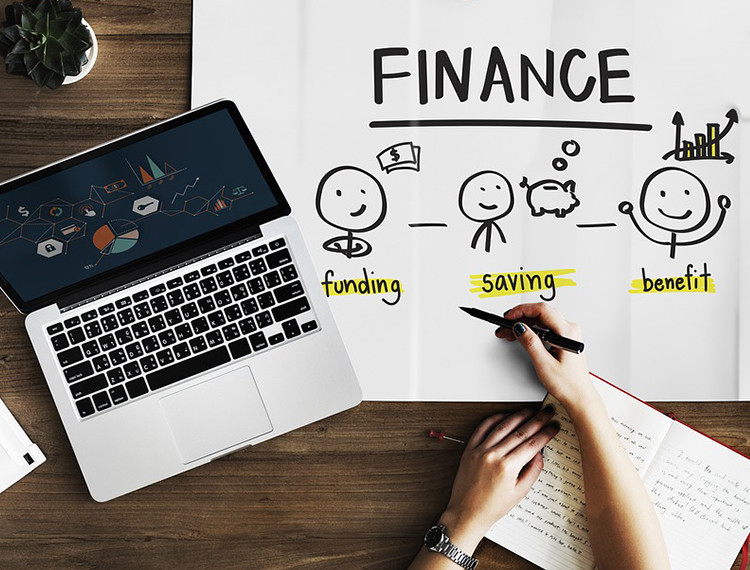Physical Address
304 North Cardinal St.
Dorchester Center, MA 02124

Global Blog Planet

Global Blog Planet


Among the ever-changing field of education, personal finance is a subject that frequently gets less attention despite its significant influence on people’s lives. Students need to understand and become proficient in personal finance as they begin their academic careers. The main purpose of this guest post is to explain the significance of personal finance to students and how it may help them become financially independent and successful in the future.
The phrase “personal finance” refers to managing your finances in addition to investing and saving. It includes banking, insurance, investments, loans, retirement, taxes, and estate planning in addition to budgeting. The phrase is frequently used to describe the entire region that deals with financial services and investment advice to households and individuals.
Key Aspects of Personal Finances
1) Since financial management is a topic that is rarely covered in school, it is important to acquire the skills through free online resources including books, blogs, podcasts, and courses.
2) Managing personal finances primarily involves handling income, expenses, savings, investments, and insurance.
3) Developing techniques such as budgeting, setting up an emergency fund, and paying off debt. And smart use of credit cards, retirement savings, and much more are all part of smart personal finance. While maintaining discipline is important it’s also necessary to know when to break the rules.
The main objective of personal finance is to accomplish your individual financial goals. These goals could be anything from having enough money to meet your basic expenses to investing in the higher education of your child. Some factors come into play, including your income, spending, saving, investing, and personal protection (insurance and estate planning). Americans are deeply in debt as a result of their inability to manage their money or exercise financial discipline. A $2 trillion increase in household debt has occurred between December 2019 and August 2022. Furthermore, from 2022’s first to the second quarter.
Personal Loan For International Students In The USA
Since many lenders may require a credit history and a consistent income, it can be difficult for international students studying in the USA to secure a personal loan. This is because many students have limited financial resources and lack an extensive credit history in the nation. Still, there are a few options that can be considered for a personal loan for international students in the USA to get their education without any difficulty.
Lending money to international students is their area of expertise for several private lenders. These lenders might provide personalized loan options for students without a credit history in the United States.
When it comes to lending requirements, some credit unions are more accommodating than regular banks. Look into student loans for foreign students by visiting the credit unions in your area.
Some financial institutions provide loans intended especially for students studying internationally. Although the terms and circumstances of these loans may be simpler, it is still important to thoroughly analyze them, paying special attention to the interest rates and payback deadlines.
Review the conditions, fees, interest rates, and payback possibilities of any loan carefully before applying for it. Have a clear repayment plan and be aware of the impact on your finances. It’s important to only take out loans for what you need and can afford to pay back. If federal student loans are available, always take them first because they frequently have better terms for students.
The present study examines the points of view of participants in Western Pennsylvania regarding the impact of personal financial education. The first step for the researchers is to go over the literature on US personal finance courses. The implosion of the US housing market is a significant facet of the financial crisis that is often overlooked and is partially related to a lack of financial literacy.
(Beck & Garris. 2019).
The following are the ways to develop financial literacy.
Students who obtain personal finance education are better prepared to make wise financial decisions. Students who grasp the fundamentals of personal finance are better equipped to manage their finances, from investing to budgeting.
Creating Dedicated Behaviors
Responsible financial habits are promoted by early exposure to personal finance. Students who understand the value of saving, budgeting, and staying debt-free are better prepared to build a strong financial foundation for the future.
Transition to Independence
The issue of financial independence arises for students as they move from school to the workforce. Learning about personal finance gives you the knowledge and skills you need to properly manage this change, including an understanding of salaries, taxes, and benefits from your job.
Debt Control
In college, a lot of students deal with credit cards and student loans for the first time. They can better manage and reduce their debt load and avoid long-term financial risks by having a solid understanding of personal finance.
Personal Finance for Beginners
Personal finance is the management of the money one has to achieve one’s financial goals and maintain one’s financial well-being. It involves making smart financial decisions, investing, budgeting, and setting aside income. However, beginners and millennials must follow specific common personal finance guidelines. Every group has particular factors to take into account as well.
Following are some general rules for personal finance for beginner students.
Budgeting
Evaluate and verify your earnings and expenses. Create a budget that asides money for savings, luxuries, and necessities.
Emergency Fund
Set aside a certain amount for emergencies. To ensure you have money on hand for unforeseen costs like auto repairs or medical bills.
Debt Control
Understand all kinds of debt (credit cards, student loans, etc.) and develop a plan to reduce and manage it.
Savings
Gather resources to meet immediate as well as future demands. This could be for retirement, a trip, or a down payment on a home.
Insurance
Understand the importance of insurance to protect yourself against unforeseen events, such as health, auto, and renter’s insurance.
Understand the basic principles of investing in stocks, bonds, and mutual funds.
Retirement Plans
Even though retirement seems far off. start making plans and thinking about them.
Education about Finances
Continue to learn about personal finance by enrolling in financial literacy courses, reading books, and using online tools.
Discuss how to pay back student loans and look at financing or loan forgiveness options.
Following are some guidance for personal finance for millennials to get aware of types of earning and loans.
If your job is your main source of money, think about looking into side projects or other sources of income. You can provide affordable thesis writing services if you have expertise in writing papers and assignments. It can help you make side earnings.
Utilize financial tools and technology to track spending, manage budgets, and make investments.
Some sites guide writing papers. You can simply seek help by searching write my finance paper at an affordable rate through the internet.
Recognize the expenses and consequences of owning vs renting a property.
The five pillars of personal finance are protection, investing, saving, spending, and income.
Income
Income is the foundation of personal finance. It is the total amount of money that you are given to use for investing, saving, spending, and protecting yourself. You bring in all of your earnings. This includes earnings from commissions, salaries, and other sources.
Expenses
Spending is defined as anything that is made with a person’s salary. This area includes things like rent, financing, groceries, pastimes, eating out, home furniture, house repairs, travel, and entertainment.
Controlling expenses is one of the most crucial elements of personal finance. To avoid debt or other financial difficulties, people must ensure that their expenses are lower than their income. Loans can lead to financial disaster particularly considering the high interest rates attached to credit cards.
Savings
The amount of money left over after expenses is saving. Having money to pay for major bills or unexpected expenses should be everyone’s goal. That being said, it might be challenging to not spend your entire salary in this way. No matter how challenging, everyone should aim to have somewhere between three and twelve months’ worth of savings to cover any swings in income and spending.
Investing is the process of buying assets, typically stocks and bonds, to earn a return on the investment. The goal of investing is to make a person wealthier than they started with. Since not all assets increase in value and can experience a loss, investing does carry some risk.
For individuals who have no prior experience with investing, it can be challenging. It is helpful to set aside some time to learn about it through reading and research. You may find it more advantageous to have a professional assist you with your financial investments if you lack the time.
Since life is unpredictable financial troubles may occur to anyone at any time Students who obtain a personal finance education have a greater ability to handle financial difficulties because they will learn how to save for emergencies and make wise financial decisions when things are hard.
Because of the constant changes in the global economy, students need to be ready to adjust. Understanding economic trends through personal finance education enables students to make smart decisions in a rapidly changing financial environment.
The term protection describes the precautions that people take to secure their financial resources and protect themselves from unexpected situations like sickness or accidents. Protection includes retirement and estate planning, as well as health and life insurance.
Another significant issue that students have when studying in this country is handling their daily finances. Due to expensive textbooks, housing, and other expenses, tuition, and other fees might be prohibitive for students. To sustain themselves, many students work part-time jobs, which can be hard and time-consuming.
Students need to develop good budgeting techniques if they want to overcome these challenges. It can be useful to keep checks on their spending, make a budget, and look for methods to save costs. Students must ask their colleges for financial guidance and assistance. They must not pass up financial help and scholarship chances. It will lessen their financial stress and enable them to concentrate on their education. (BuyEssay. 2023).
Conclusion
Personal financial education is an important life skill that serves as the foundation of a safe and prosperous future for students. It is not just another aspect of their academic path. Universities and other educational institutions help to shape a group of students who are not just academically skilled. But also financially aware and ready to face the challenges of life with courage and confidence. By fostering financial literacy in their students. A lifetime of financial security and wise decision-making can be established by investing in personal finance education, which pays off.
References
Beck, J.J. and Garris III, R.O., 2019. Managing personal finance literacy in the United States: A case study. Education Sciences, 9(2), p.129. Blog Online Available at
< https://www.mdpi.com/2227-7102/9/2/129>